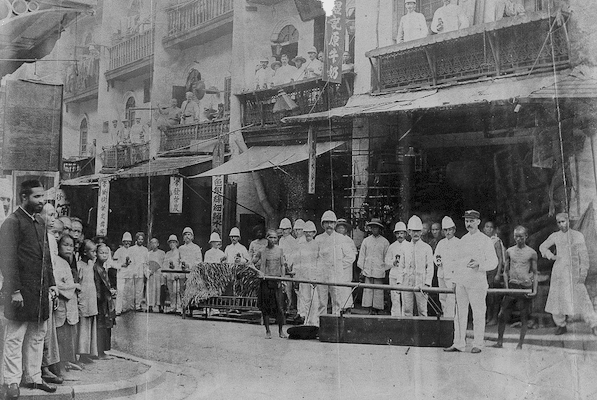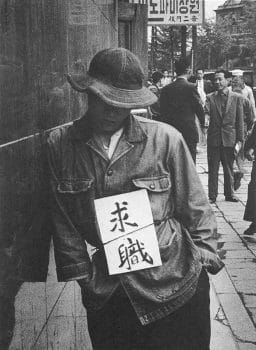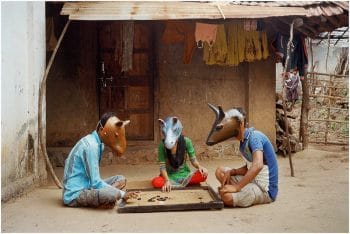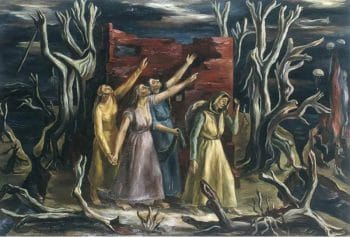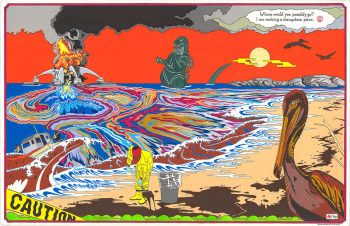Dear friends,
Greetings from the desk of the Tricontinental: Institute for Social Research.
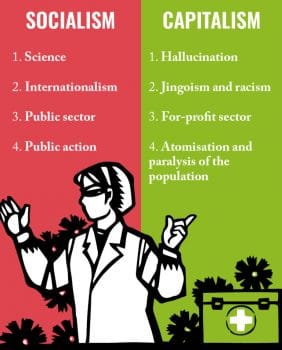 Social media, in March 2020, was awash with rumours. Swans and dolphins could be seen in totally deserted Venetian canals. A group of elephants marched into a village in Yunnan (China), drank corn wine, and went to sleep in a tea garden. With the Great Lockdown in progress, it appeared as if animals had taken charge of the planet while humans hid in our homes. But there were no swans and dolphins in Venice, nor were there drunk elephants. This was the fiction of boredom, tricks of photoshop.
Social media, in March 2020, was awash with rumours. Swans and dolphins could be seen in totally deserted Venetian canals. A group of elephants marched into a village in Yunnan (China), drank corn wine, and went to sleep in a tea garden. With the Great Lockdown in progress, it appeared as if animals had taken charge of the planet while humans hid in our homes. But there were no swans and dolphins in Venice, nor were there drunk elephants. This was the fiction of boredom, tricks of photoshop.
In April, the World Trade Organization estimated that global trade volumes might collapse by about 32%; markets fell, and money searched for safe shores, such as gold. The estimates were too high; the WTO reported in June that trade volumes fell by about 3% in the first quarter and will decline by 18.5% in the second quarter; trade has gradually picked up as China opened up. The capitalist system was not a victim of the pandemic, nor did nature reassert itself. The ruling classes borrowed from the future to settle anxiety; trade–while registering a large drop–has resumed its activity. The wealthy bondholders forced the Paris Club (official creditors) and the London Club (private creditors) to refuse any substantial debt postponement and debt cancellation from the Global South to ensure that the basic structures of debt servitude remain intact. War ships from the United States aggressively patrolled the Caribbean, the Persian Gulf, and the South China Sea. In other words, the overall structure of imperialism has been unshaken.
In our study CoronaShock and Socialism, we pointed to a marked difference in the management of the pandemic by countries with bourgeois governments and countries with socialist governments. The latter has a science-based, public sector, public action, and internationalist attitude–as further explained by co-authors Manolo de los Santos and Subin Dennis–which has meant that the areas of the world governed by socialists have experienced less of a catastrophe than the countries of the bourgeois order. That is why it is important to campaign for the Nobel Peace Prize for Cuba’s Henry Reeve International Medical Brigade.
The pandemic produced significant shocks to the capitalist system. Of the consequences, we will look at six complexities in this newsletter.
- An assault on humanity. In the early part of the Lockdown, half of the world’s employable population (1.6 billion out of 3.3 billion workers)–all informal workers–lost 60% of their income (workers in Africa and the Americas registered an 80% decline). As a result of this, the number of people experiencing food insecurity will rise from 149 million before COVID-19 to 270 million during the pandemic; the UN suggests that half of the world’s population struggles with hunger. Due to disruptions in health and nutrition services, UNICEF says that about 6,000 children could die per day from preventable causes by the year’s end. Billions of people have become a surplus population, unnecessary for capital accumulation. The pandemic has heightened the assault on humanity. There is an urgent need for direct relief for the unemployed and the hungry. FAO shows that one trillion dollars’ worth of food is wasted or lost–enough to feed 2 billion people. That the hungry do not have money for food, a reality in a class system, is the root cause of hunger.
-
The destruction of the petty proprietor. Capitalism tends to extinguish the small farmer and the artisan, swept up as they are by the monopoly forces of agribusiness and industrial capital. Before the pandemic, the small shopkeeper, the restaurant owner, and the small businessperson had been protected for a variety of reasons. During the pandemic, these petty proprietors are being wiped out by platform capitalism as the consumer has been trained to buy from the web and avoid the small businesses. The International Labour Organization says that more than 436 million enterprises that operate in wholesale and retail ‘face high risks of serious disruption’. The transfer to platform capitalism means that these enterprises–which employ hundreds of millions of people in a geographically dispersed manner–will be liquidated and the platform firms that are more productive and efficient–who employ less people and in geographically concentrated areas–will overcome them.
-
The restoration of gender hierarchies. Stay at home orders have impacted the division of labour inside the family, with widespread reports of the deepening of women’s burdens around housework and childcare. All socialised forms that have lightened this work–such as public education, childcare centres, and meals eaten out–have been annulled. The unimaginative approach to education–in which mothers have been forced to help bridge the digital divide–will leads to years of lost education and increase the pressure on women to forgo their work for reproductive labour. Women in the care economy–including in health care–report that their concerns over the lack of childcare, poor pay for care work, and poor protections for the workers, as well as massive layoffs and understaffing in the care economy, have put increased pressure on women workers. Finally, a reported increase in violence against women is a direct consequence of the Great Lockdown; no real policy framework has been adopted to address this issue. All of this reinforces patriarchal gender hierarchies.
-
The attack on democracy. Under cover of the Great Lockdown, governments with formal commitments to bourgeois democracy have taken the opportunity to erode basic rights. In India, for instance, the government has withdrawn labour protections and increased the working day; in Brazil and South Africa, we see evidence of evictions of the poorest workers and peasants from their homes. From Bolivia to Thailand, we see coups sanctified and elections delayed. The murders of political activists from Colombia to South Africa and the imprisonment of dissenters from India to Palestine continue. Without setting democratic institutions completely aside, these governments suffocate democratic processes by using the democratic institutions.
-
The use of the environmental crisis to save capitalism. Even as the pandemic suggests the need to rethink the destructive capitalist relations, which have damaged the metabolism that holds the balance between humans and nature, there has been a mechanism to reduce the ‘environmental crisis’ to ‘climate change’ and to offer ‘green capitalism’ or–to be more precise–the ‘Green New Deal’ as the salvation to the crisis. This Green New Deal is simply the use of public money to underwrite the transition of private energy firms from carbon to renewable fuels with no concern for the miners of cobalt, lithium, and other minerals needed for the batteries and screens of green technology. There is a need to advance the debate about the environmental crisis by bringing in the wider issues of agrarian reform, the transfer of productive assets to the public sector, and a deeper debate about the energy transition. Calculations suggest that capitalism requires something like 3% growth for normal functioning, which means that the size of the global economy must double every 25 years. The planet cannot sustain such exponential growth.
-
The use of the crisis to attack china. The deepened aggression from the U.S. government towards China has opened a new set of challenges for the world. What began as a trade dispute in the 1990s has now escalated into what can only be described as the United States making an existential challenge against China. This threat against China by the totality of the U.S. ruling class is made not for irrational reasons but for perfectly rational ones: first, that the U.S. correctly sees that the Chinese economy is slowly going to become the largest in the world, and second, that the various hybrid war strategies to weaken or overthrow the Chinese government are simply not sufficient to stop China from eclipsing the US’ current stronghold on the world order. The only means at the disposal of U.S. imperialism is armed force. Short of armed action, which is a genuine threat, the United States is attempting to undermine China’s role in the world economy; this is going to be very difficult to accomplish, although the U.S. ruling class understands that it would be willing to suffer short-term disruptions for long-term hegemony. There is a need to stand against a new cold war and join the movement around the statement proposed by the No Cold War platform.
Despite the dangerous incompetence of the bourgeois governments, their legitimacy has not automatically eroded. They remain in power and appear poised to deepen their authority.
Amongst those who have been arrested is Varavara Rao, the Indian Communist poet, who is now unwell in prison. In 1990, he imagined the arrest of a communist like himself in his poem ‘The Other Day’, whose lines suggest the unfairness of the system that diminishes our humanity,
Property
Fractures the human world
Into custodians and criminals.
Far better to be a criminal in this world than to be a custodian of inhumanity.
Warmly, Vijay.

